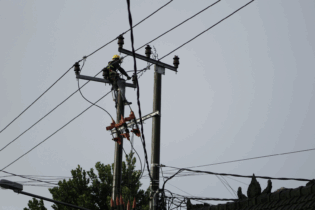A Surge in Solar Adoption Prompts Calls for Responsible Recycling Practices
In a historic shift, 2023 has witnessed a remarkable surge in South Africa’s embrace of solar energy, with corporations and civil society making unprecedented investments in solar panels to combat the challenges posed by load shedding. A recent report from BusinessTech highlights a threefold increase in the country’s solar panel imports, reaching a record-breaking R3.6 billion in the first quarter of 2023. While the move towards renewable energy is lauded, experts are urging a closer look at the potential environmental consequences. Dr. Mark Williams-Wynn, KZN Branch Committee Member of the Institute of Waste Management of Southern Africa (IWMSA), warns of the looming challenge of recycling millions of solar panels and batteries set to be imported into the country. The Challenge: Millions of Discarded Panels and Batteries in a Decade Williams-Wynn estimates that South Africa is now home to between 20 million and 25 million solar panels, each with an expected lifespan of around 20 years. Anticipating mass recycling needs in the next 10 to 15 years, he emphasises the importance of addressing the proper disposal of these panels and their hazardous components. Solar panel waste is prohibited from landfills due to potential risks to human and environmental health. Williams-Wynn advocates for alternative waste management solutions, such as recycling, refurbishing, repairing, or reusing, highlighting the significance of proper management for the batteries used in solar systems.“The challenge with solar panel waste lies not only in their sheer quantity but also in their potential environmental hazards. We need to adopt sustainable waste management practices to navigate this impending wave of solar waste,” warns Williams-Wynn.
The Solution: Adherence and Power of the Customer’s Voice Williams-Wynn emphasises that the success or failure of South Africa’s solar waste management will depend on responsible actions taken today. He stresses the need for adherence to Extended Producer Responsibility (EPR) regulations, which were implemented in 2021 to hold producers accountable for the end-of-life management of their products. While challenges such as expenses, control, and enforcement exist, Williams-Wynn believes that both the general public and solar installers can play a pivotal role in driving change. He encourages customers to realize the collective power they possess, asserting that exerting pressure on solar and battery producers to comply with EPR regulations will prepare South Africa for the impending wave of solar waste in the years to come. “The methods for properly disposing of and recycling panels and batteries are constantly developing and improving, but if we do nothing now, we could face a catastrophe later,” cautions Williams-Wynn. “It’s crucial for everyone to contribute to sustainable practices, ensuring a greener and cleaner future for South Africa.”






